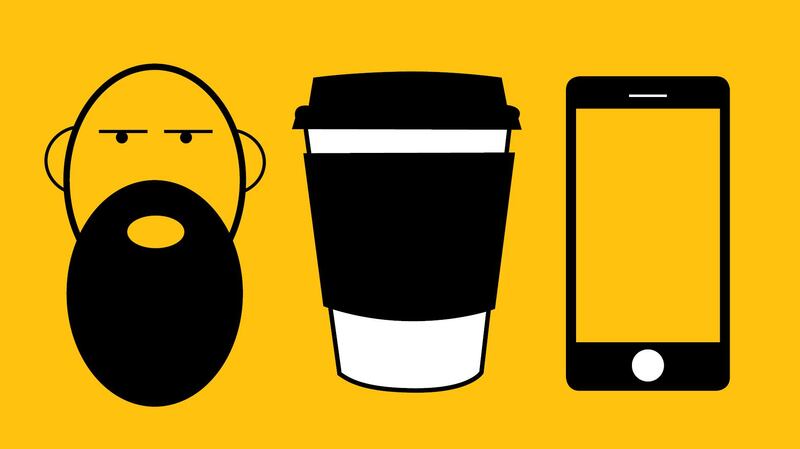If the standard image commonly bestowed on the world's millennials is to be believed, then the generation is easy to spot.
They are the young men and women sitting in cafes, bars and malls, streaming the latest films and box sets on their mobile phones and tablets or casually chatting to their friends and family in far-off lands for free via their laptops and headsets. They are the idealistic 20-somethings speaking passionately at the next restaurant table about their hopes and dreams, caught up in their own idealistic vision of a better tomorrow, while digging into the latest food craze, intermittently WhatsApping when the opportunity presents.
What is a millennial?
If this hyper-stereotyped depiction sounds anything like you then you were probably born between 1981 and 1996 – a so-called "millennial" as defined by non-partisan US-based think tank the Pew Research Centre. According to a recent Pew report, the United States will next year contain more millennials than members of any other generation. The likes of the Baby Boomers (those born following the Second World War) or generation X (those born between 1965 and 1980, using the Pew definition) will soon play second fiddle to a millennial generation that is expected to hit 73 million in the US by next year.
"This cohort generational analysis started with the [1929-39] Great Depression [generation] – and they've been naming these generations ever since then," says Barbara Kahn, a marketing professor at the Wharton School of the University of Pennsylvania.
Kahn says that such generational analysis can be split into two corresponding parts: that which separated the generations according to marketing demographics; and the more organic concept of how world events have shaped individuals as they came of age.
"These are the things that happened to you when you were somewhere between 14 and 22, and they are different for each generation," Kahn says of the latter point. "And those are the things that fundamentally change you."
For millennials, the American academic says, the greatest change to hit much of the world was the Great Recession, which in the US officially lasted from December 2007 to June 2009. It began with the bursting of an eight-trillion-dollar American housing bubble and went on to become the nation's longest economic downturn since the Second World War. It crippled global financial markets as well as the banking and real-estate industries in Europe, Asia and elsewhere.
"Millennials came of age during the Great Recession and that characterised their behaviour," Kahn notes. "There's a lot of economic data to show that they were forever changed by that – it affected their first job and other things along those lines.
______________________
Read more:
[ The best blogs to help millennials manage their money ]
______________________
“With the cohort analysis, that was the original idea behind the Great Depression generation – that depression babies were going to be fundamentally different from everybody else because they came of age during the depression. And millennials are the same.”
Other than not enjoying the same economic prosperity or security as past generations, millennials, industry experts say, are perhaps best known for their highly tuned digital fluency. They are the digital natives who grew up with the World Wide Web as opposed to the digital immigrants of Generation X and those generations before who, it is said, will forever be playing catch up.
Writing in Forbes magazine in 2015, internationally renowned thought leader, speaker, writer and Fortune 200 HR executive Louis Efron said: "Millennials don't want jobs. They want lives… They don't buy into the concept of sitting at a cluttered desk 10 hours a day trying to look busy for a boss. They see a bigger picture, leveraged by technology."
Abeer Najjar could well fit into that category. The Arab-American millennial was born to Palestinian immigrants in Chicago, where she is a self-taught chef and runs her own food blog. "Technology has played a huge role in how confident I was in being able to take that step in my career and pursue food," the 31-year-old tells me, via a WhatsApp call. "Social media introduced me to a whole new world of being able to share my food and my passion and my art with other people."

While the US may be on the verge of millennial domination, this generation has also been making waves in the Middle East, according to industry insiders. There's no better example than the Arab uprising, which saw a groundswell of millennials take to social media, as Tunisia, Egypt and Libya dramatically overthrew their respective dictators. While the years following the Arab uprising have not been kind to Libya in particular, young Tunisian, Egyptian and Libyan men and women were the catalyst for rebellion – the generation that lit the spark that caused historic political tremors across the region.
Nicole Grove is an assistant professor of political science at the University of Hawaii at Manoa. Having taught and researched in different parts of the Middle East, she has been "incredibly inspired by the ways in which young [Arabs] are articulating new political energies through art, photography, game design and other creative projects".
“Sometimes the political messages are more and less overt, but I find that spaces for artistic expression and play can often be less regulated, and provide environments where politics is imagined and experimented with in new ways outside the more traditional measurement of political change, like participation in elections or mass protests.”
Juan Cole, author of The New Arabs: How the Millennial Generation is Changing the Middle East, told Public Radio International in 2014 that millennials made up some 40 per cent of the population of the Arab world. According to a 2017 report by HSBC Private Bank, the Middle East has the highest proportion of millennial entrepreneurs in the world. The 2016 Asda'a Burson-Marsteller Arab Youth Survey found that 53 per cent of millennials in the region viewed stability as more important than democracy.
Emirati millennials
Grove is currently conducting fieldwork in the UAE. The academic says that "many of my encounters with younger [Emiratis] have happened at gaming conventions, national festivals, museums, book fairs, amusement parks, and events like the Middle East Film and Comic Con".
"I had far more opportunities to speak with younger Emiratis at these types of events than I did in other contexts, and they were quite willing to share their thoughts with me on a number of topics, from urban development to religion to political leadership to the economy," she says. "I think this says something about how play and fun change the stakes of political thinking in the UAE."
But do we put too much emphasis on generational notions, such as those which commonly describe – even stereotype – millennials? And, whether in the US or the Middle East, "what is left of the millennial generation, once the empty stereotypes are stripped away?", as the Financial Times pondered in April. Najjar, for one, is well aware of her differing life experience as a 30-something millennial, compared to a millennial who is 22 (the youngest people in the generation) – not least from the standpoint of an Arab-American Muslim woman. From a technological perspective, the food blogger says that she retains an empathy for her parents, who are not part of this tech-heavy generation.
"Being at the older end of the millennial spectrum, I wasn't born right into technology and I have seen that [technological] shift," Najjar says. "So I do remember a time when I didn't have that and I think I'm still able to stay in touch through that real-life communication."
Kahn accepts the "heterogeneity" within the millennial generation – but as far as technology is concerned, millennials are "digitally native", which "affects their decision-making", she says. Kahn flags the importance of consumer reviews and GPS technology to millennials. She adds that young adults are more likely to use their mobile phones to find locations than to bring out a physical map.
Grove said the term millennial can answer important questions about how young adults are impacting the world around them, but concedes that "young people today are inheriting a very different world from previous generations, and this deserves significant reflection".
As such, she is not certain the term millennial “captures the complexity of these challenges, in part because the term itself is linked primarily to economic and consumer dynamics”.
"While those are significant sites of change, they are not the whole picture," Grove says. "We also have to consider the short-and long-term impacts of climate change, which will affect this generation of young people in their lifetime in ways we cannot predict."
_________________________
Read more:
[ Generation Y employees – what defines and drives them ]
[ UK millennials face a poorer future than their parents ]
[ Debt aware millennials are ditching credit cards ]
_________________________










